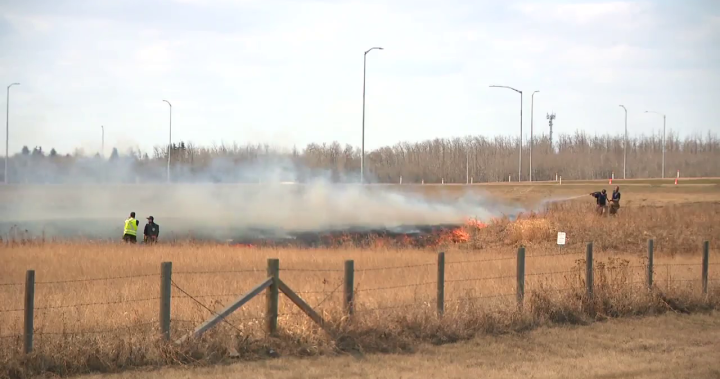After four days that saw Alberta’s electricity grid system operator issue grid alerts on each of those days, including one that went provincewide on the emergency alert system on Saturday, Calgary’s mayor said there’s a lesson to be learned about how to better coordinate a response with the city’s commercial electricity users.
“I have been in conversation with our administration to find out what opportunities we took as a city and a corporation to reduce our power consumption over the weekend,” Mayor Jyoti Gondek said.
Gondek said city officials also have calls in to the many downtown properties, including office towers, to find out what they did when the province came very close to having rolling power outages.
“I do think, however, the biggest highlight here is that we have to have a coordinated plan.”
The Building Owners and Managers Association (BOMA) Calgary, an industry association promoting standards for commercial building ownership and property management, said many downtown Calgary buildings took “important steps” to reduce their demand on the grid and most buildings closely manage their electricity use for cost-savings and for environmental reasons.
“This means that every evening and weekend they are using a fraction (in many cases 40 per cent less) of their usual demand, while the opposite is true for households,” BOMA Calgary executive director Lloyd Suchet said in an email.
Get the latest National news.
Sent to your email, every day.
“A number of downtown towers also participate in existing provincial programs for shedding load when the grid is stressed, and responded to these requests over the weekend.”
After Saturday’s emergency alert, social media users pointed out the apparent hypocrisy of asking residents to use electricity saving tactics like not doing laundry or using smaller appliances like microwaves to cook food while office towers were lit up over the weekend.
Suchet said in many buildings, lights are generally controlled by individual tenants and often on motion sensors. He also noted that buildings have largely converted to LED lighting.
“While lights are the most visible representation of electrical use in a building, they are responsible for about eight per cent of the electricity in the average building. The more impactful measures that were taken are lowering the various fans, motors, and pumps for heating and water systems cannot be seen from the street in a way that lighting can,” Suchet said.
The BOMA Calgary said it has an environmental certification program which encourages buildings to establish a clear plan to quickly reduce grid load to respond to events like grid alerts.
“I think what we are seeing here is a good opportunity for BOMA and our members to fine tune some processes in addressing lighting automation going forward,” Suchet said.
Calgary’s mayor said an integrated response could be considered for future runs of grid alerts.
“If this type of thing happens into the future, we all have to be able to pull the levers that we have at our disposal, but we need to know what we’re doing and how we’re integrating that response,” Gondek said.
On Monday, Alberta’s Minister of Affordability and Utilities Nathan Neudorf said the response to the emergency alert was “absolutely tremendous,” seeing a drop of 100 megawatts (MW) of demand within the first minute and another 100 MW minutes later.
“Just to give some reference to that, 100 megawatts is approximately the equivalent of what 120,000 houses would use in an hour,” Neudorf said.
Gondek was proud of the response from Alberta’s largest city.
“Calgarians did really good work there. They ran their appliances at a different time, or they chose not to do a load of laundry because they knew we needed to be there for and with each other,” she said.
© 2024 Global News, a division of Corus Entertainment Inc.




